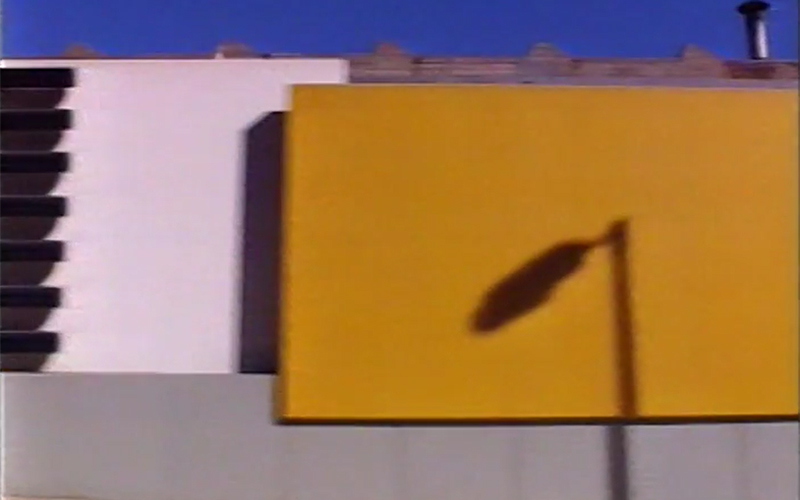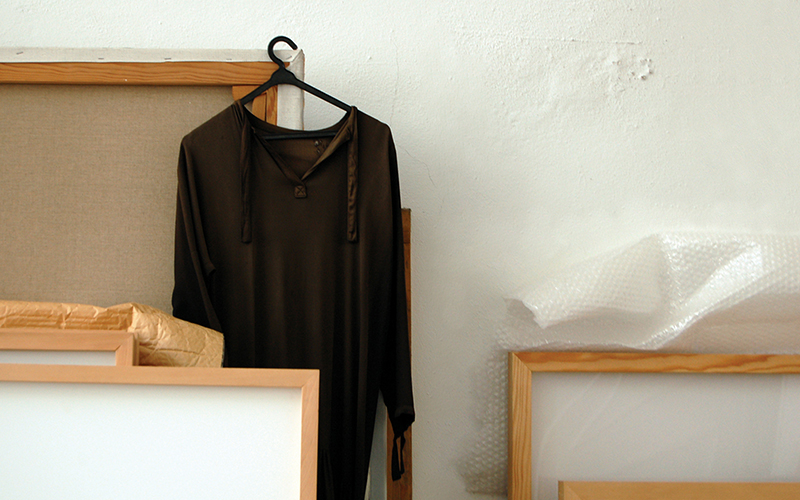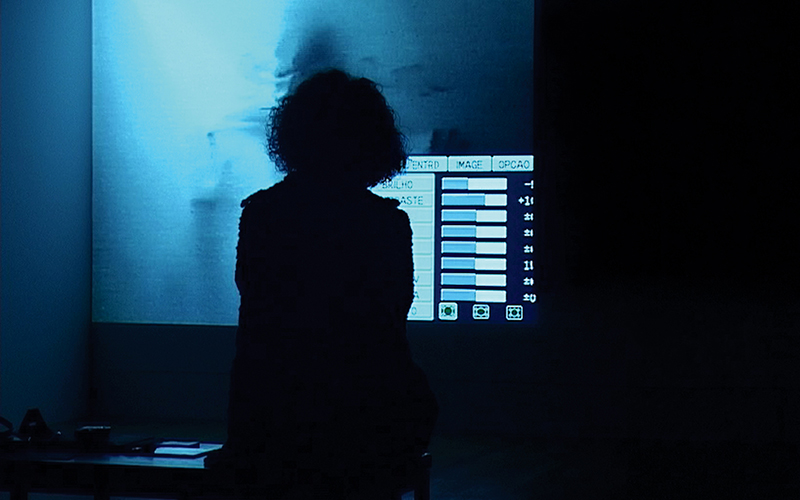Filmed Artists
Cycle The Gulbenkian and Portuguese Cinema - 4th edition
Event Slider
Date
- / Cancelled / Sold out
Location
Modern Collection – Multi Use RoomR. Dr. Nicolau Bettencourt, Lisbon
FILM 1
António Palolo: Seeing thoughts run
Director: Jorge Silva Melo
Portugal, 1995
Duration: 42 minutes
Original version: Portuguese
Production: G.E.R. (Grupo de Estudos e Realização) / Calouste Gulbenkian Foundation – Centro de Arte Moderna
Copy provided by the Calouste Gulbenkian Foundation
Final debate with the curator, the directors of this session and Nuno Faria
SYNOPSIS
The starting point for this film was an exhibition of António Palolo’s work at the Calouste Gulbenkian Foundation’s Centro de Arte Moderna [Modern Art Centre]. Based on the artist’s recollections, Jorge Silva Melo made a film in the first person. He recalls a time that is now past, a time of the adventures of his generation when young, the university, cafés, bookshops, some of which were also art galleries. The work and figure of António Palolo act as the guiding thread.
MORE DETAILS
Photography: João Guerra, Rui Poças
Sound: Pedro Caldas
Editing: Nelly Quettier
With: António Palolo, Manuel Brito, Maria Helena Freitas, Rui Mário Gonçalves
Production: G.E.R. (Joaquim Pinto), Calouste Gulbenkian Foundation, CAM-Centro de Arte Moderna
Supported for film production, 1995, by the Modern Art Center/Calouste Gulbenkian Foundation
Jorge Silva Melo was born in Lisbon. He gave up his studies in Romance Philology to go and study at the London Film School where he took a degree in directing. He is one of the most important figures in contemporary Portuguese theatre as both a stage director and an actor. He co-founded the Cornucópia theatre company in 1972 where he remained until 1979 staging both classical and contemporary repertory. After doing internships in Berlin with Peter Stein and in Milan with Giorgio Strehler, he returned to Portugal and founded the Artistas Unidos company in 1995 where he works primarily as a stage director. He has written six plays and translated texts by Carlo Goldoni, Luigi Pirandello, Oscar Wilde, Bertolt Brecht and Pier Paolo Pasolini.
(1980) Passagem ou a Meio do Caminho
(1984) Ninguém Duas Vezes
(1988) Agosto
(1993) Coitado do Jorge
(1995) Palolo, Ver o Pensamento a Correr
(1997) A Entrada na Vida
(1999) Joaquim Bravo, Évora 1935 Etc. Felicidades
(2002) António, um Rapaz de Lisboa
(2004) Conversas com Glicínia Quartim
(2006) As Conversas de Leça em Casa de Álvaro Lapa
(2008) A Felicidade (short)
(2007) Gravura: Esta Mútua Aprendizagem
(2008) Álvaro Lapa: a Literatura
(2008) Nikias Skapinakis: o Teatro dos Outros
(2009) E Não se Pode Exterminá-lo?
(2009) Bartolomeu Cid dos Santos: Por Terras Devastadas
(2009) António Sena - a Mão Esquiva
(2011) Ana Vieira: e o que Não É Visto
(2010) Ângelo de Sousa: Tudo o que Sou Capaz
(2011) A África de José de Guimarães – co-directed with Miguel Aguiar
(2016) Ainda Não Acabamos
(2016) Sofia Areal: um Gabinete Anti-Dor
(2018) Fernando Lemos: como? não é retrato?
FILM 2
Inhabited painting
Director: Joana Ascensão
Portugal, 2006
Duration: 50 minutes
Original version: Portuguese
Subtitles in English and in Portuguese
Copy provided by the director
Final debate with the curator, the directors of this session and Nuno Faria
SYNOPSIS
A documentary about the work of Helena Almeida, a plastic artist who since the late 1960s has developed a work in which she explores the limits of self-representation and the boundaries between the different media she uses, be they painting, drawing, photography or video. Pintura Habitada focuses on the various phases and elements involved in the complex creative process through which Helena Almeida constructs her works from the first studies to the exhibition of the finished works.
MORE DETAILS
Screenplay: Joana Ascensão
Photography: Joana Ascensão
Sound: João Matos, Nuno Mourão, Mathilde Neves, Emídio Buchinho
Editing: Joana Ascensão, João Nisa
With: Helena Almeida
Production: Joana Ascensão, João Matos, Susana Nobre, Raiva
Distribution: João Nisa Produções
Support for film production (documentary film), in 2005, by the Fine Arts Department/Calouste Gulbenkian Foundation.
Joana Ascensão was born in Lisbon. She studied photography at Ar.Co and has a degree in Media Studies from NOVA University of Lisbon. She has been part of the programming team at the Cinemateca Portuguesa since 2009 where she has been responsible for planning and organising various cycles, among which “O Cinema e a Cidade”, “24 Imagens – Cinema e Fotografia”, “Stan Brakhage: a Arte da Visão” and “O Cinema de Michael Snow”.
(2006) Pintura Habitada



